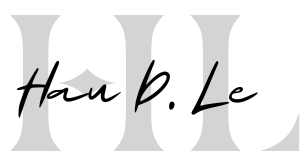How Knowledge Shapes Power
The Power of Knowledge
In the summer of 1945, J. Robert Oppenheimer, an American theoretical physicist and director of the Manhattan Project’s Los Alamos laboratory during World War II, watched the first nuclear test he and his team developed light up the New Mexico desert. As the mushroom cloud rose, he quoted the Bhagavad Gita, a Hindu scripture: "Now I am become Death, the destroyer of worlds."
This moment highlights an essential truth about human nature: once we acquire knowledge, it transforms not only us but also our connections with everything around us. Throughout history, humans have harnessed knowledge to save and improve lives, but, not uncommonly, it has also been wielded destructively.
A scientist who understands atoms holds a power that warriors of the past could never have envisioned. Someone who comprehends world politics can alter the course of entire nations. A doctor knowledgeable in pharmacology and physiology can provide tangible help, while others may only offer hope. These examples illustrate how knowledge generates influence in our world; it creates a framework that empowers individuals and shapes our relationships with ourselves, others, and our environment.
Knowledge Multiplies Power
Think about physical strength throughout history: the strongest person might defeat ten others in a fight; a legendary warrior with a sword, maybe a hundred. The limits of muscle and bone created natural boundaries. But knowledge can transcend these limits.
An engineer who understands explosives can design weapons that could harm thousands. A military planner who understands psychological warfare can make entire regions surrender. A computer programmer who understands network weaknesses can affect millions of people. Knowledge doesn't just add to power—it multiplies it, creating huge differences in relationships at every level.
This is why when we say, "Knowledge is power," we're not just speaking in metaphors, but real terms—information becomes potential energy that can reshape reality.
Different Levels of Understanding
Not all knowledge gives equal power. How much influence you have depends on how deeply you understand something, which develops through different stages.
The first level is basic knowledge—information you've heard, remembered, and understand on the surface. This is like a medical student memorizing body parts or someone who can repeat laws word for word. They know facts and might understand them, but have never seen those facts work in real situations. Their knowledge remains theoretical, untested against real-world complexity.
Many medical students who rotate with us can confidently explain a treatment for appendicitis and pancreatitis and quote research to support it. Still, few would know how to take out an appendix. Their knowledge was more like isolated facts, disconnected from deeper principles and reality. This level of understanding has limited real-life value.
The second level comes through application—knowledge tested through real experience, refined through mistakes, and developed through practice. A surgical resident who has performed dozens of appendectomies can understand the procedure not just in theory but physically and intuitively, recognizing variations and problems that might arise. A diplomat who has negotiated across different cultures develops an understanding that goes beyond textbook theories.
This experience-based knowledge turns abstract understanding into practical skills. It's like the transitioning from reading about honey to actually tasting it, from studying conflict resolution in classroom to actually settling a heated argument. This level of knowledge creates experts who have substantial power because they can connect theory and practice, allowing them to handle complex situations with both knowledge and expertise.
There is a third, rarer level of knowledge—comprehending systems themselves and creating new knowledge. The scientists who helped to discover and undestand DNA are ordinary individuals who have reached this level. This level of understanding is vast and limitless. Here, we find figures like Einstein in physics and the Buddha in spirituality, who recognize the underlying patterns that govern broad realms of thought. These thinkers create frameworks that reshape how societies understand themselves.
These individuals don't just work within existing knowledge—they reimagine it. Their insights create ripple effects across many areas, restructuring relationships on societal scales. When Einstein reimagined space-time, he didn't just advance physics; he transformed humanity's relationship with the universe.
How Knowledge Spreads Through Society
Knowledge exists within social networks and is passed through complex relationships. Most people operate using the first level of understanding, learning information presented by others. Teachers typically pass on what they've learned through similar processes, creating knowledge transfer chains that can spread insights and errors.
Some scholars go further, testing claims against evidence and making modest additions to existing knowledge. Then, there are practitioners, such as physicians and engineers, who put their theoretical understanding into practice. But the true innovators—those rare individuals who fundamentally rethink how we understand reality—emerge through a dedicated mix of deep understanding, critical thinking, and creative insight.
This creates natural hierarchies in how knowledge influences relationships. A cardiologist’s knowledge and training give her the power to help patients seeking treatment. An economist's grasp of markets grants him influence in policy discussions. The difference in knowledge creates power differences that directly affect interactions, whether we acknowledge them or not.
But these hierarchies also create problems. When knowledge is based on incorrect understanding, the effects multiply as they spread through society, often via influential and powerful individuals. Consider how doctors recommended pregnant women avoid peanuts in the late 1990s and early 2000s based on a theory that early exposure might cause babies to develop allergies. However, this approach led to continued increases in peanut allergies. The authority of medical knowledge allowed this practice to continue long after evidence suggested it might be harmful.
This shows the paradox of knowledge and power: the same structures that allow helpful insights to improve countless lives can also spread harmful misconceptions. The surgeon saving a patient through evidence-based procedures and the medieval doctor bleeding a fever patient both operated with full confidence in their knowledge, with dramatically different outcomes.
The Ethics of Knowledge as Power
This brings us to the moral implications of knowledge as a force in relationships. If knowledge gives power, and power shapes relationships, then acquiring and using knowledge carries ethical weight. A physicist working on nuclear weapons faces different moral questions than one studying stars, though both pursue knowledge in the same field.
Moreover, the uneven distribution of knowledge creates power and responsibility. Those who have a deep understanding of critical areas that affect the lives of those who don't, whether through direct action (like physicians) or indirect influence (like economists shaping policy). This creates obligations regarding how knowledge is developed, communicated, and applied.
We see this tension in modern medicine. Evidence-based approaches have dramatically improved treatment outcomes compared to earlier practices based on tradition or theory alone. Yet harmful treatments still occur when business interests distort knowledge or institutional resistance preserves outdated approaches.
Similar dynamics unfold in every area where specialized knowledge affects human relationships—from education to environmental policy, city planning, and artificial intelligence development. The quality of our collective knowledge determines the quality of our collective lives.
The Importance of Relationships
Understanding knowledge as a form of power that structures relationships offers important insights for navigating our complex world. Knowledge drives our interactions with others. For example, a doctor's expertise in medical procedures influences their interactions with patients seeking treatment. The patient's understanding of symptoms and the doctor's explanations guide conversations and decisions made. The use of knowledge of both the doctor and the patient shapes the relationship and the treatment course. Our decision-making processes are influenced by our knowledge and that of those around us. To be effective in our relationships, knowledge must be preserved through accurate, clear, and efficient communication.
All of this reminds us that knowledge doesn't exist separate from human relationships. The most brilliant insight means nothing until it influences how we relate to ourselves, others, and our environment. The physicist's equations matter because they change how we understand our place in the universe. The psychologist's observations matter because they transform how we connect with ourselves and each other.
In this sense, knowledge becomes meaningful precisely when it shapes how we relate to each other. Relationships, in turn, become the testing ground where knowledge proves its value. The true power of what we know emerges in the space between us—in how it enables us to build connections, resolve conflicts, address shared challenges, and create meaning together.
This back-and-forth dynamic between knowledge and relationships defines the human experience. We are, after all, beings who understand the world through connection with information, ideas, and each other. Ultimately, the most profound knowledge may be understanding this interplay: what we know shapes how we relate, and how we relate determines what we can know.




